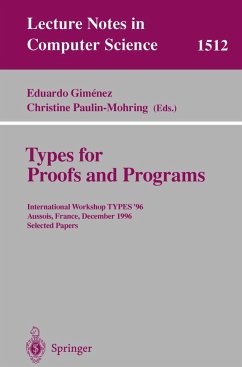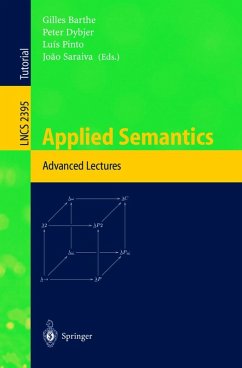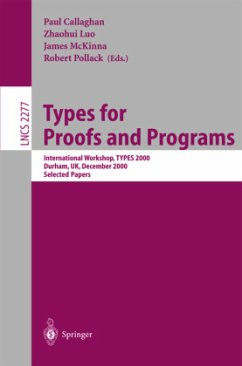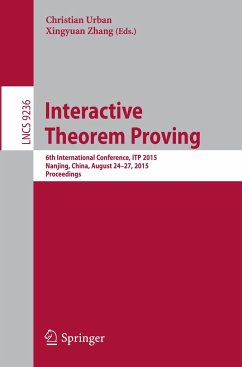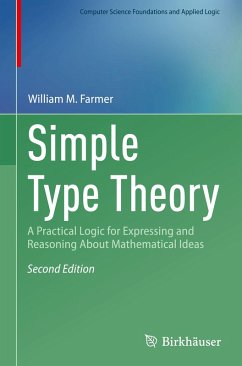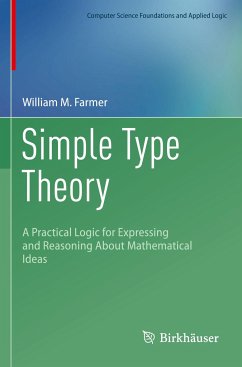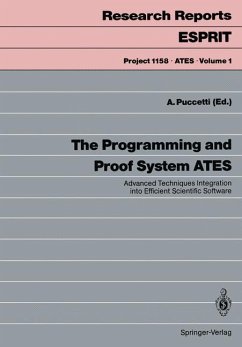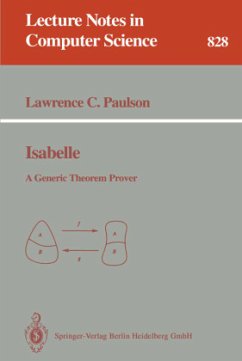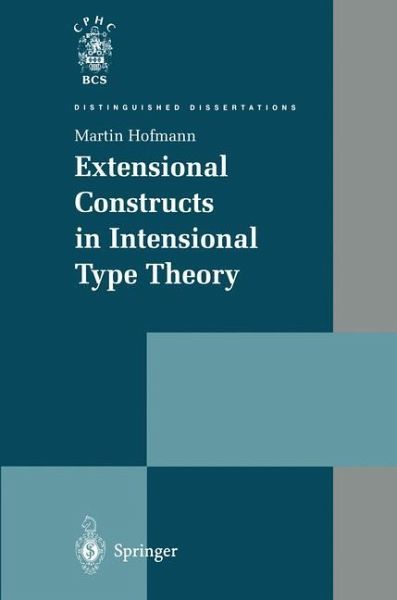
Extensional Constructs in Intensional Type Theory
Versandkostenfrei!
Versandfertig in 6-10 Tagen
106,99 €
inkl. MwSt.

PAYBACK Punkte
53 °P sammeln!
Extensional Constructs in Intensional Type Theory presents a novel approach to the treatment of equality in Martin-Loef type theory (a basis for important work in mechanised mathematics and program verification). Martin Hofmann attempts to reconcile the two different ways that type theories deal with identity types. The book will be of interest particularly to researchers with mainly theoretical interests and implementors of type theory based proof assistants, and also fourth year undergraduates who will find it useful as part of an advanced course on type theory.





